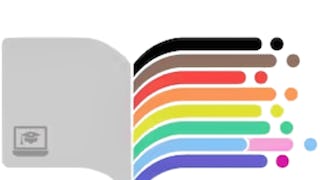As a teacher, are you wondering what you can say in class about race or racism or gender and sexuality? Are you feeling pushback in your own school or context or pressure to avoid topics that have been labeled as "divisive"? Are you curious about how to support all students in your classes and how to build trust with parents and families in more sustained and enduring ways? If so, this course is for you. This course supports teachers looking for tools to reach all students and families—– even as teachers’ and students’ rights are increasingly under threat and as topics such as identity, race, and gender have become increasingly contested in schools. This course strives to provide practical tips for teachers as well as guidance for collaboration and solidarity during these contentious times. We begin by defining concepts associated with inclusive teaching practices and culturally sustaining pedagogies.

Enjoy unlimited growth with a year of Coursera Plus for $199 (regularly $399). Save now.

Recommended experience
What you'll learn
Apply inclusive concepts, and practices for teaching.
Learn about teachers’ rights/responsibilities.
Cultivate family/student relationships.
Skills you'll gain
Details to know

Add to your LinkedIn profile
See how employees at top companies are mastering in-demand skills

There are 5 modules in this course
In this module, you will become familiar with the overall structure of the course, as well as the requirements for pursuing the course certificate. In particular, the final assignment required for those wishing to pursue the certificate will be outlined as well as the overall organization of the course.
What's included
2 videos4 readings1 assignment1 discussion prompt
In this module, you will become familiar with common vocabulary and ideas associated with culturally sustaining teaching practices. In addition, you will consider subconscious biases that we each bring into our own classroom spaces as educators. In this module, you will be invited to think reflectively about how to honor students and families’ backgrounds, to use cultural tools as a lens and to effectively address unconscious bias in a way that allows you to meet the needs of your students and educational environment.
What's included
1 video7 readings1 assignment1 discussion prompt
Educators and students alike are in a stressful teaching and learning climate. However, by practicing a culturally sustaining pedagogy that recognizes and honors student cultures, identities, and backgrounds, we can make the classroom environment warm and welcoming for all students. In this module, we define culturally sustaining pedagogies, we explore strategies and tools conducive to culturally sustaining approaches, and we consider how we might leverage such tools in our own teaching contexts.
What's included
1 video10 readings1 assignment1 discussion prompt
This module examines the history of rights and responsibilities for teachers at the state and federal level. Through examination, trends will be explored to show how education has been a key political agenda whenever lawmakers feel a threat to their agenda. Specifically, this module will showcase historical trends of anti-inclusive educational policies such as anti-bilingual and anti-ethnic studies from the 1990s - early 2000s. Then, this module will highlight the current trends of anti-CRT, anti-gay legislation, anti-SEL, and Book Bans nation wide. This module will conclude with modern activism from teachers and students as examples of how these current oppressive educational trends can be fought against and pushed back on while being mindful of teacher rights and responsibilities.
What's included
1 video10 readings1 assignment1 discussion prompt
In this module, we will explore the ways that teachers might forge relationships with family and community in order to advocate for and with students and their families as well as continue to offer Understand the value of students’ families and the role of communities in shaping school culture and landscapes.
What's included
2 videos14 readings1 assignment1 peer review1 discussion prompt
Instructors


Offered by
Explore more from Education
 Status: Preview
Status: PreviewUniversity of Michigan
 Status: Preview
Status: PreviewUniversity of Colorado System
 Status: Free
Status: FreeUniversity of Colorado Boulder
 Status: Free
Status: FreeUniversity of Virginia
Why people choose Coursera for their career




Frequently asked questions
To access the course materials, assignments and to earn a Certificate, you will need to purchase the Certificate experience when you enroll in a course. You can try a Free Trial instead, or apply for Financial Aid. The course may offer 'Full Course, No Certificate' instead. This option lets you see all course materials, submit required assessments, and get a final grade. This also means that you will not be able to purchase a Certificate experience.
When you purchase a Certificate you get access to all course materials, including graded assignments. Upon completing the course, your electronic Certificate will be added to your Accomplishments page - from there, you can print your Certificate or add it to your LinkedIn profile.
Yes. In select learning programs, you can apply for financial aid or a scholarship if you can’t afford the enrollment fee. If fin aid or scholarship is available for your learning program selection, you’ll find a link to apply on the description page.
More questions
Financial aid available,
¹ Some assignments in this course are AI-graded. For these assignments, your data will be used in accordance with Coursera's Privacy Notice.





